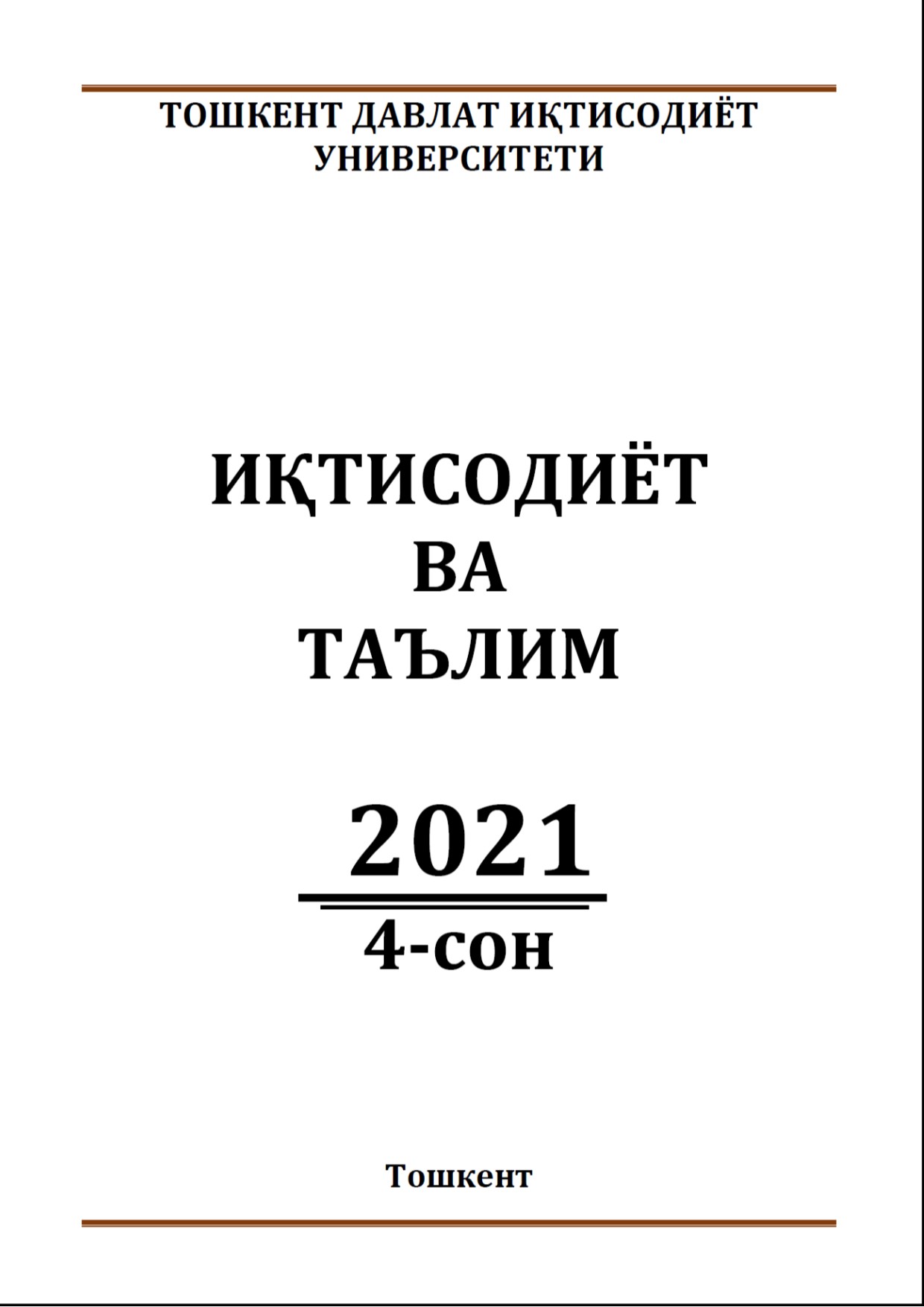Abstract
For the successful conduct of any business, for its sustainable development, it is necessary to support and gradually improve business processes in three directions: economic, social and environmental. This article examines the social sphere of the organization, where research shows the importance of the human factor in the development of the company. When analyzing the workforce of the studied company, shortcomings and problems were identified, the solution of which will serve as an impetus for achieving the set strategic goals of the organization. In a competitive environment, for the further development of the enterprise and in order to achieve the goals of sustainable development, the company needs to consider the identified problems and the solutions given to them.
References
Corbett, C. J., & Klassen, R. D. (2016). Extending the horizons: environmental excellence as key to improving operations. Manufacturing & Service Operations Management, 8(1), 5-22.
Daily, B., Huang, S., 2001. Achieving sustainability through attention to human resource factors in environmental management International. J. Oper. Prod. Manage. 21 (12), 1539–1552. https://doi.org/10.1108/01443570110410892.
Elkington, J., 2017. Cannibals With Forks: The Triple Bottom Line of the 21st Century. Capstone, Oxford, 34-67
Fauzi, H., Svensson, G., & Rahman, A. A. (2020). “Triple bottom line” as “Sustainable corporate performance”: A proposition for the future. Sustainability, 2(5), 1345-1360
Folinas, D., Aidonis, D., Triantafillou, D., & Malindretos, G. (2013). Exploring the greening of the food supply chain with lean thinking techniques. Procedia Technology, 8, 416- 424.
Jackson, S.E., Schuler, R., 2015. Understanding human resource management in the context of organizations and their environments. Annu. Rev. Psychol. 46 (1), 237–264.
Kiron, D., Kruschwitz, N., Haanaes, K., von Streng Velken, I., 2012. Sustainability nears a tipping point. MIT Sloan Manage. Rev. 53 (2), 69–74.
Maryam Pervez Khana, Noraini Abu Talibb, Tan Owee Kowangc. (2020) The Development of a Sustainability Framework via Lean Green Six Sigma Practices in SMEs Based upon RBV Theory. International Journal of Innovation, Creativity and Change. www.ijicc.net Volume 12, Issue 5, 2020, 81-99
Nour Chamsa, Josep García-Blandón. (2019) On the importance of sustainable human resource management for the adoption of sustainable development goals. Resources, Conservation & Recycling 141 109–122
Seebode, D., Jeanrenaud, S., & Bessant, J. (2017). Managing innovation for sustainability. R&D Management, 42(3), 195-206.
Tasdemir, C., & Gazo, R. (2018). A Systematic Literature Review for Better Understanding of Lean Driven Sustainability. Sustainability, 10(7), 25-44.
Yakovleva, N., Sarkis, J., & Sloan, T. (2012). Sustainable benchmarking of supply chains: the case of the food industry. International Journal of Production Research, 50(5), 1297-1317.
Yuri Yasinsky (2020) Modern governance for economic development. Republic of Belarus, Minsk, Bankaustkiy Vestnik, May, 15, 12-19

This work is licensed under a Creative Commons Attribution-ShareAlike 4.0 International License.
Copyright (c) 2021 Иқтисодиёт ва таълим
